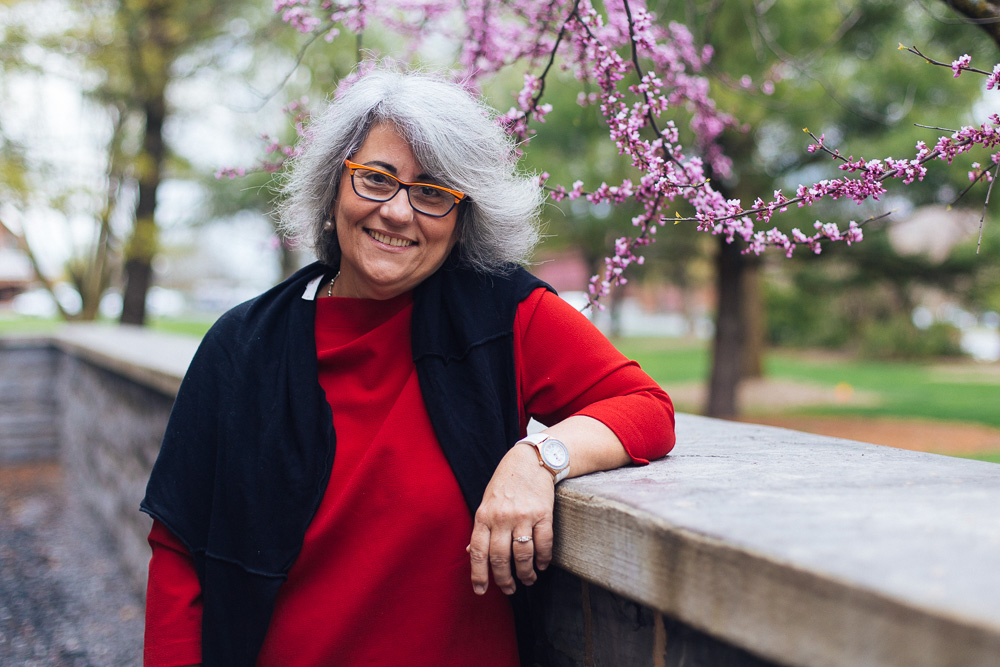In the late 1990s, a Brazilian judge named Isabel Lima traveled to a conference in New Zealand to talk about her work with juvenile offenders in Terra Nova, a poor community in her home state of Bahia. After her presentation, an audience member asked if Lima was using something called “restorative justice.” It was the first time she’d heard the term.
Conversations ensued, connections were made, and Lima flew back home with a few articles to read and the feeling that something important had just happened.
“It was a definitive moment,” she recalls. “I felt that restorative justice would be my path.”
It’s a path that eventually brought her to Eastern Mennonite University (EMU), where she was a visiting scholar at the Center for Justice and Peacebuilding in the spring and a participant at the Summer Peacebuilding Institute (SPI).
Teaching and leading in the RJ field
What first excited Lima about restorative justice was the way in which its principles aligned with the holistic, community-centered approach to the law that she’d been developing as a judge. It was a mindset inspired by her long commitment to Catholic-affiliated human rights movements and her previous career as a nurse. The “top-down” way in which the law treated individual offenders and the broader community particularly bothered her.

“I was not happy with that as a solution,” said Lima. “With restorative justice, I found a new theoretical approach. It was no longer only my feelings and my intuition.”
Although she retired from the judiciary a few years after that trip to New Zealand, Lima has kept working in restorative justice in a variety of capacities ever since, including a two-year period in Timor-Leste, where she helped draft the country’s first juvenile justice law. She has also been a professor at the Catholic University of Salvador, the capital of Bahia, for the past 18 years.
Along the way, Lima grew to admire EMU’s leadership in the fields of restorative justice and peacebuilding, and visited the university’s Zehr Institute for Restorative Justice for a week in 2016.
During her recent residency at CJP, she worked on some research projects and studied to improve her English. This summer, she is taking courses at SPI. Meanwhile, Lima has also been laying the groundwork for a week-long conference and retreat for a diverse group of people active in Brazil’s large and fast-growing restorative justice movement.
Judge seeks alternative solutions in conflict resolution

The event will be hosted at EMU from October 23-27, 2017, by CJP and the Zehr Institute of Restorative Justice. The 25 to 30 expected participants, representing Brazil’s legal system, academia and civil society, will meet with Zehr Institute co-directors Howard Zehr and Carl Stauffer, CJP professor Johonna Turner, and leaders of local organizations working with restorative justice.
Among Lima’s colleagues who plan to attend is Leoberto Brancher, a juvenile court judge in the city of Caxias do Sul who has been using restorative justice in his work for 15 years. As interest in restorative justice in Brazil has grown in recent years, its reach and legitimacy have moved far beyond the courtroom. Brancher now plays in a key role in the coordination of several public service centers in Caxias do Sul dedicated to conflict resolution and prevention as well as community-building. The program was established in 2010, and, since 2014, has been managed by the city government. The city also has peace commissions working in its jails, healthcare system and its most violent neighborhood, and a “peace volunteers” program that has trained nearly 1,000 people in the use of circle processes build and strengthen community. Of those, nearly 100 have received additional training to become certified to resolve conflicts in their communities.
“Frustration with traditional solutions has been fueling the search for alternatives,” Brancher said.
Over the past several years, Brancher has also coordinated an initiative led by the state courts in Rio Grande do Sul to use restorative justice in judicial cases as well as to promote social well-being and reconciliation. In the first two years of this program, several hundred people in more than other 20 cities have passed a 220-hour course and become certified to use restorative justice to resolve cases referred from backlogged local courts.
“We are taking this very seriously, because we know that we’re building the foundation of a new model of justice, and quality trainings are at the core of this foundation,” said Brancher.
Zehr: Brazil is a ‘dynamic venue’ for RJ development
Brazil is “one of the most dynamic venues for restorative justice development these days,” says Zehr, a distinguished professor of restorative justice at EMU who has been invited to lecture in Brazil several times.
“We at CJP are honored to have been asked to further assist these exciting development,” he continued. “We look forward to the restorative justice training for judges and representatives of Brazilian civil society in October. It is a pleasure to work with innovative and committed judges such as Leoberto Brancher and Isabel Lima.”
Looking forward to the October event, Lima hopes to see a steering committee formed that can continue to coordinate collaboration between restorative justice practitioners in Brazil and CJP.
“We are very motivated and very committed to restorative justice,” Lima said. “At this event, we will be able to strategize together, learn from those at CJP who are really grounded in this work, and look forward to a sustainable future for this movement.”
